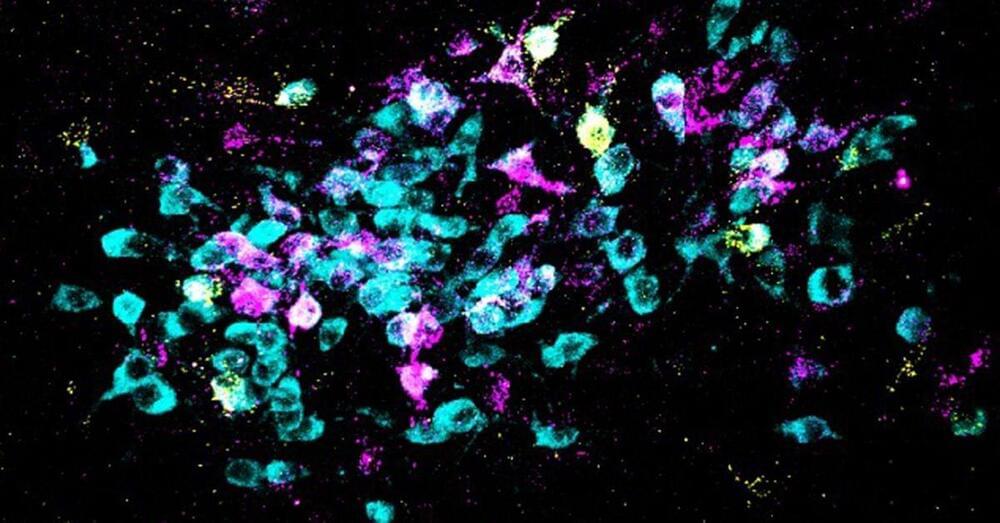The stress-induced mechanisms that cause our brain to produce feelings of fear in the absence of threats have been mostly a mystery. Now, neurobiologists at the University of California San Diego have identified the changes in brain biochemistry and mapped the neural circuitry that cause such a generalized fear experience. Their research, published in the journal Science on March 15, 2024, provides new insights into how fear responses could be prevented.
In their report, former UC San Diego Assistant Project Scientist Hui-quan Li, (now a senior scientist at Neurocrine Biosciences), Atkinson Family Distinguished Professor Nick Spitzer of the School of Biological Sciences and their colleagues describe the research behind their discovery of the neurotransmitters — the chemical messengers that allow the brain’s neurons to communicate with one another — at the root of stress-induced generalized fear.
Studying the brains of mice in an area known as the dorsal raphe (located in the brainstem), the researchers found that acute stress induced a switch in the chemical signals in the neurons, flipping from excitatory “glutamate” to inhibitory “GABA” neurotransmitters, which led to generalized fear responses.
